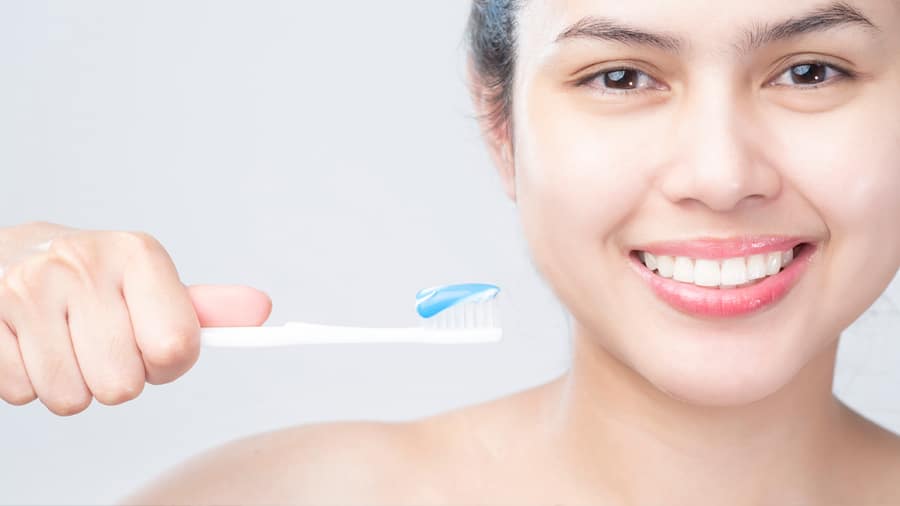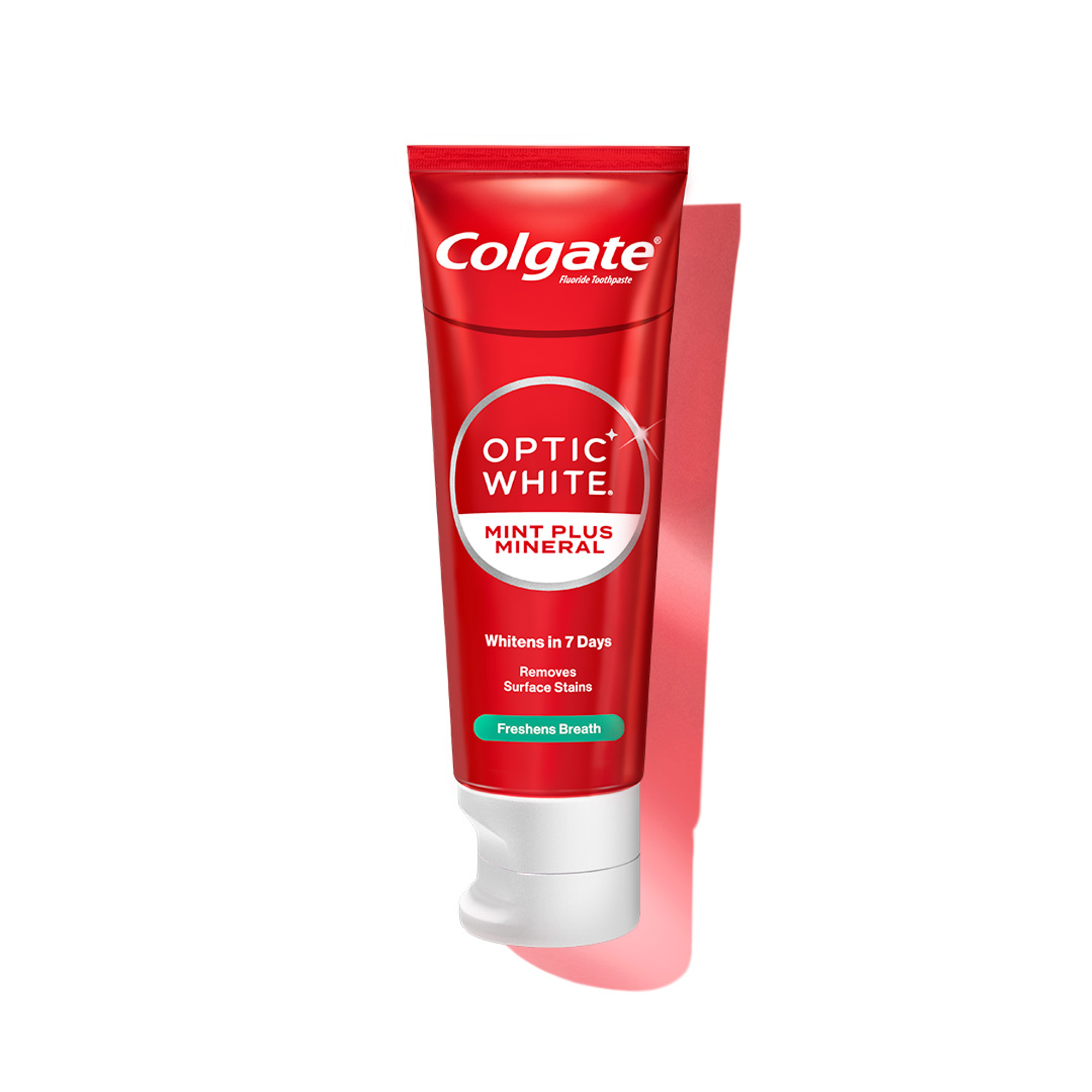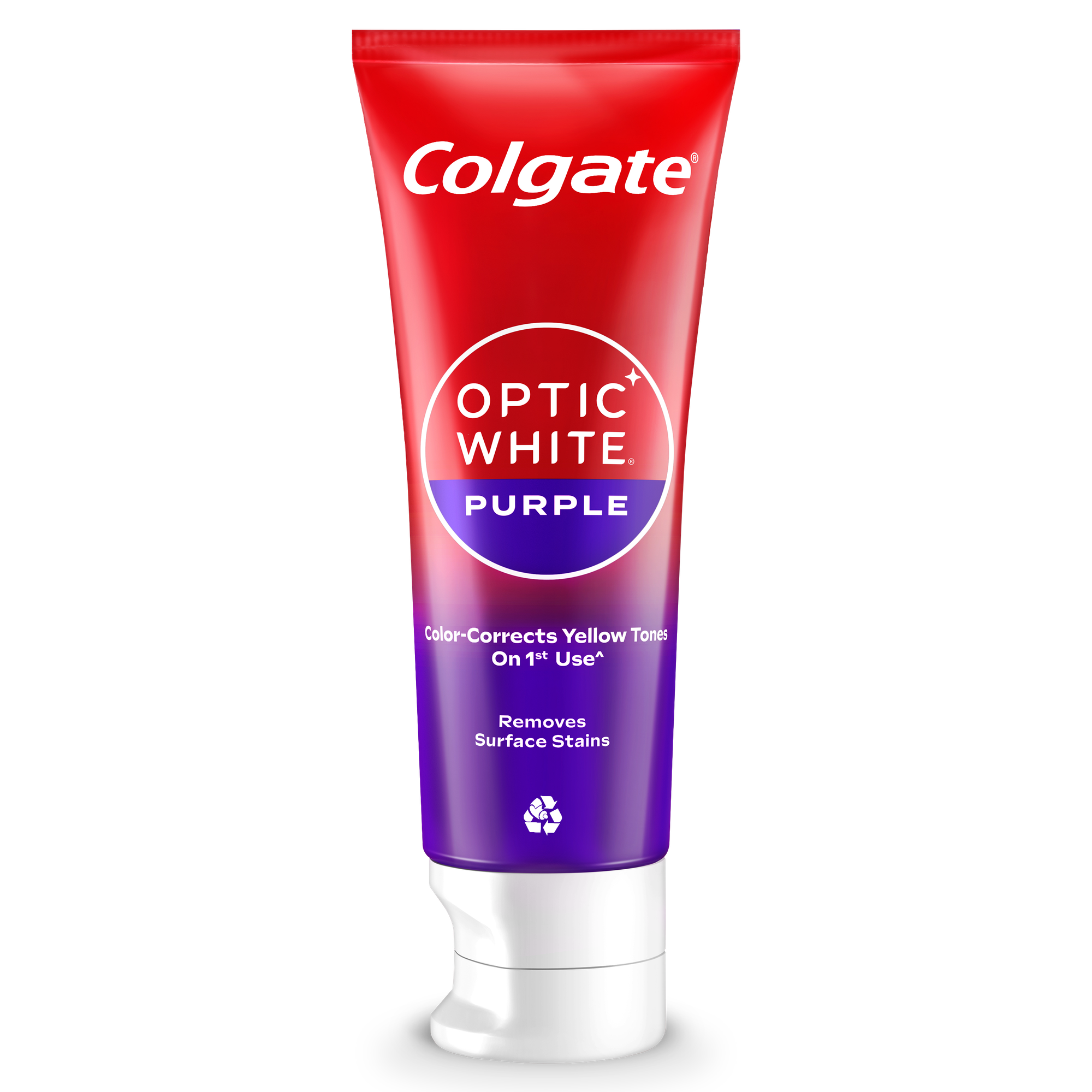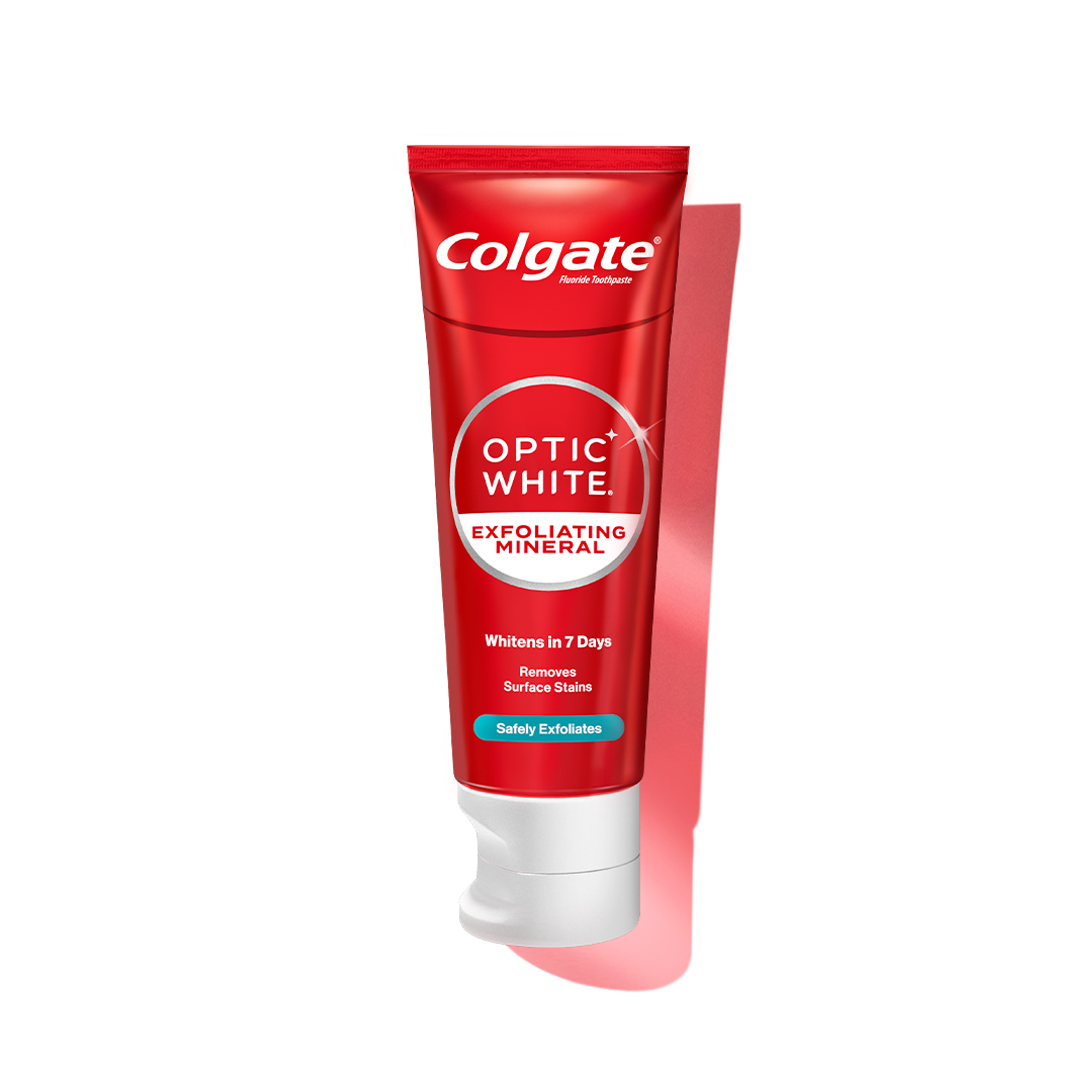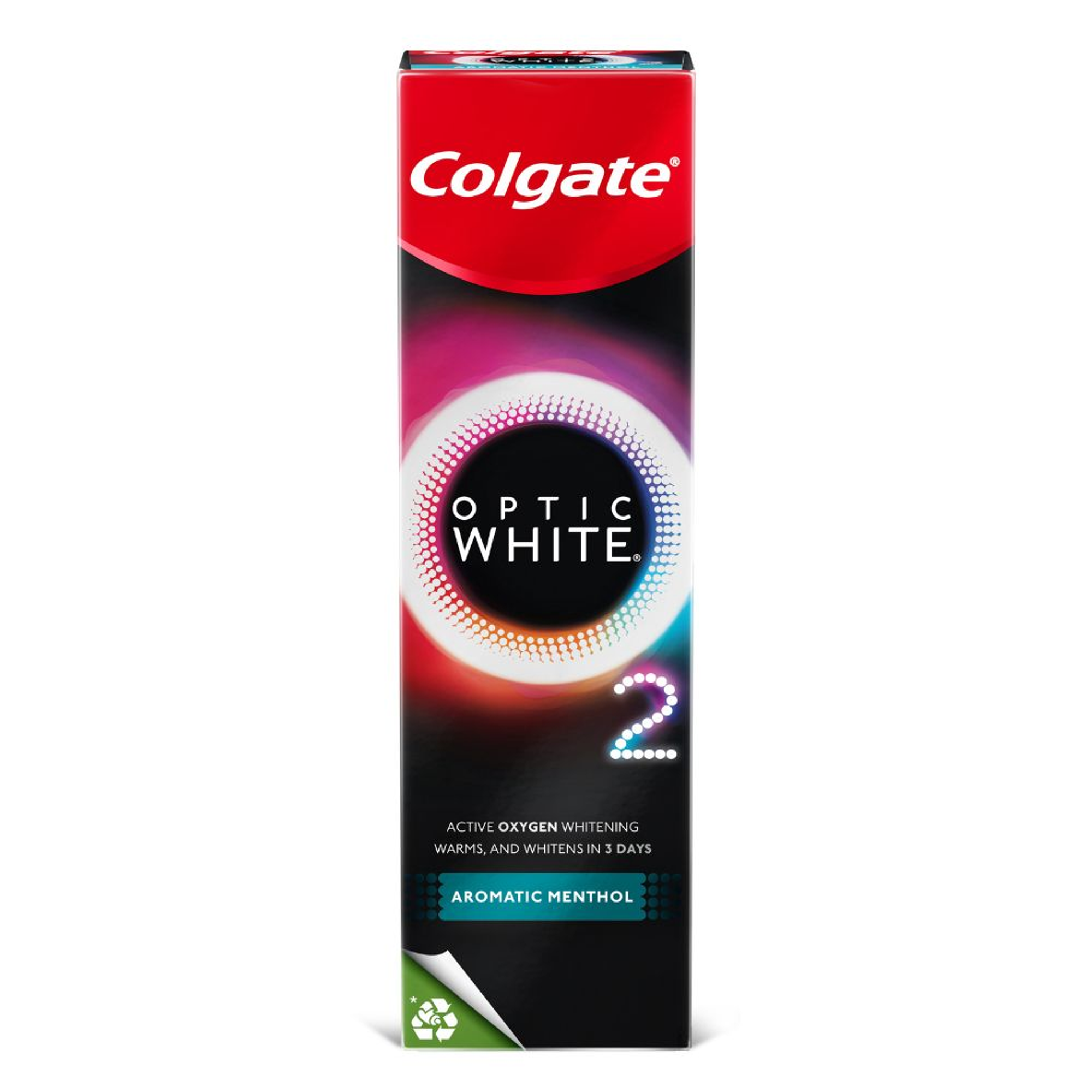Keep reading to learn how whitening toothpaste works, the different types available, and smart tips on how often to use whitening toothpaste without harming your teeth. Understanding the “hows” and “whys” can help you pick a product that’s both effective and safe for daily use.
How Whitening Toothpaste Works
If you have ever wondered, does teeth whitening toothpaste work, the answer is yes. Whitening toothpaste works by helping remove surface stains on your teeth. Tooth stains are typically caused by everyday habits like drinking coffee, tea, red wine, or smoking. Whitening toothpastes contain mild abrasives and special chemical agents that polish the teeth and break down surface stains.
Some whitening toothpastes also include small amounts of hydrogen peroxide or carbamide peroxide. They are bleaching agents commonly used in professional whitening treatments. These ingredients help lighten the colour of the enamel slightly, although not to the extent that in-office whitening can. However, it is important to manage your expectations. Whitening toothpaste does not change the natural colour of your teeth. That is why some people feel that whitening toothpaste doesn’t work. But in reality, it is working only on surface stains, not deeper discolouration.
Types of Whitening Toothpaste
Not all whitening toothpastes are made equal. From trending whitening ingredients to clinical-grade formulas, there are several types to choose from. Below are the different types of whitening toothpastes available on the market. Knowing these variations based on their active ingredients can help you select a product that suits your needs and ensures safety.
1. Abrasive-Based Toothpastes
Most whitening toothpastes use mild abrasives as whitening agents to physically scrub away surface stains. These mild abrasives include hydrated silica, calcium carbonate, magnesium carbonate, or aluminium oxides. Abrasives like these are found in toothpaste to remove surface stains to reveal whiter teeth. These are generally safe for daily use to attain a brighter smile, provided they are not overly abrasive.
2. Peroxide-Based Toothpastes
These contain low concentrations of hydrogen peroxide or carbamide peroxide. These are the same ingredients used in professional whitening treatments. If you are wondering about Colgate whitening toothpaste ingredients, many of them combine hydrogen peroxide with fluoride and stain-fighting polymers for safe, everyday use. The Singapore Dental Association notes that bleaching materials, such as hydrogen peroxide, can cause mild to moderate tooth sensitivity. But with the help of proper techniques, there has been no record of long-term side effects.
3. Activated Charcoal Whitening Toothpaste
The rising popularity of activated charcoal teeth whitening toothpaste is due to its natural absorbent properties. While it may help lift surface stains, charcoal can be abrasive if used too often and may wear down enamel over time. Always use with caution and consult your dental professional to know whether it is suitable for your dental needs.
4. DIY Whitening Pastes
Many are now making DIY teeth whitening paste using baking soda, lemon juice, or coconut oil. While these homemade remedies may appear harmless, many are acidic or abrasive and can damage your enamel if used frequently. It is best to rely on clinically tested products for both safety and results.
Choosing the right whitening toothpaste depends on your goals, level of tooth sensitivity, and how quickly you want to see results. When in doubt, opt for a dentist-recommended product with proven ingredients.
Is It Safe to Use Whitening Toothpaste Every Day?
With so many options promising a brighter smile, “is it safe to use whitening toothpaste everyday” is a common query. The good news is that most whitening toothpastes from reputable brands are formulated for daily use and are generally safe. This is especially effective when used as directed.
These toothpastes typically contain mild abrasives and low concentrations of whitening agents that work gently over time. However, safety also depends on the product’s formulation and how it is used. Overusing highly abrasive pastes or brushing too aggressively may lead to enamel wear, surface roughness, or increased tooth sensitivity.
That brings us to an important concern: Are whitening toothpastes harmful? Not really, but problems can arise with overuse or using poorly formulated products that are too harsh on tooth enamel. That is why it is essential to choose a toothpaste that is dentist-recommended and avoid any at-home DIY hacks that could damage your teeth in the long run. It is a good idea to check with your dentist before making whitening toothpaste part of your everyday routine.
Risks and Side Effects of Overuse
While whitening toothpaste is generally safe, excessive or improper use of whitening toothpaste can lead to unwanted side effects. It is important to understand the potential risks before making it a part of your long-term oral care routine.
Enamel Damage and Erosion: Many whitening toothpastes rely on abrasives to remove surface stains. However, using them too frequently or brushing too hard can wear away your enamel. Enamel erosion can make your teeth appear more yellow over time and increase sensitivity.
Tooth Sensitivity: Overuse of whitening agents may irritate the nerves inside your teeth. This is especially found with the overuse of peroxide-based whitening products. Due to tooth sensitivity, you may experience discomfort when consuming hot, cold, or sweet food and drinks.
Gum Irritation: Some formulas may be too harsh for people with sensitive gums. Repeated exposure to whitening agents may result in gum irritation or inflammation. This is particularly true if you already have mild gum disease.
Impact on Dental Work: If you have fillings, crowns, or veneers, whitening toothpaste will not affect their colour. This can result in uneven whitening, where natural teeth appear lighter than the rest. Over time, this mismatch may require professional correction.
Misleading Expectations: Whitening toothpastes mostly remove surface stains. They may not be effective for deeper discolouration. If your whitening toothpaste doesn’t work, the cause of the staining may be internal and require professional treatment.
So, is it safe to use whitening toothpaste everyday? Yes, but following the directions is crucial. Prolonged overuse or using low-quality products can be harmful. If you are unsure, consult your dentist to ensure your whitening routine does not interfere with your overall oral health or increase your risk of tooth decay.
How to Use Whitening Toothpaste Safely
Whitening toothpaste can help you brighten your smile at home, but it is important to use it the right way. If you are wondering how to whiten teeth with toothpaste, start by brushing gently with a soft-bristled toothbrush for two minutes, twice a day. Do not scrub too hard because whitening toothpastes contain mild abrasives that do the work for you.
So, is it safe to use whitening toothpaste everyday? Yes, as long as you use a gentle, enamel-safe formula and avoid pairing it with other strong whitening products like strips or gels. If you have sensitive teeth, consider alternating with a toothpaste for sensitivity to protect your enamel. Consistent use, good brushing habits, and regular dental checkups will help you whiten your teeth safely and effectively.
How to Choose the Right Whitening Toothpaste
With so many choices, picking the right whitening toothpaste can feel a bit difficult. Some promise to be instant teeth whitening toothpaste, while others use natural or peroxide-based ingredients. The key is to find one that fits your needs without harming your enamel.
Look for Ingredients: Start by checking the whitening toothpaste ingredients. Effective whitening toothpastes usually have safe whitening agents that help whiten teeth by removing surface stains. Many also include fluoride to protect your teeth from cavities and make them safe for everyday use.
Consider Your Sensitivity Level: If your teeth are sensitive, try switching between a whitening toothpaste and one made for sensitivity.
Evaluate Whitening Claims: Some over-the-counter toothpastes say they offer fast results. But even if they call themselves instant teeth whitening toothpaste, it is important to know that results usually take time. For strong or deep stain removal, it is recommended to see a dentist for professional whitening.
Check for Safety Approval: Pick a toothpaste that is approved by dental associations or recommended by dental professionals. If you are not sure what to choose, ask your dentist to help you find the right one for your dental care routine.
Tips on Daily Whitening Toothpaste Use
Using whitening toothpaste every day may help keep your smile bright, but it is important to use it the right way. So, how often to use whitening toothpaste? Most types are safe for daily use, especially if the label says so. But even then, using it too much or the wrong way can cause problems.
Then, is it safe to use whitening toothpaste everyday? Yes, as long as you are gentle and follow these tips:
Brushing your teeth twice a day is important. However, when using a whitening toothpaste, check its directions for use. Use gentle, circular motions with a soft-bristled toothbrush to avoid hurting your enamel while still cleaning your teeth well.
Flossing every day helps remove food and plaque from between your teeth. This stops stains from building up and helps your whitening toothpaste work better.
Be careful with other whitening products. Using too many teeth whitening products, like whitening strips or gels, along with your toothpaste can make your teeth feel sensitive. If you are using more than one whitening product, talk to your dentist to make sure it is safe.
Try to cut back on coffee, tea, and other stain-causing food and drinks. If you do have them, rinse your mouth with water afterwards.
If you start feeling sensitivity or irritation, take a break from your whitening toothpaste for a few days. But if the discomfort persists, consult a dental professional to get personalised advice.
When To See A Dental Professional
While whitening toothpaste can help brighten your smile, it might not always be the right solution for everyone. If you are experiencing any discomfort or if you are asking yourself, “Are whitening toothpastes harmful?” it might be time to consult a dental expert.
A dentist can help identify whether your tooth stains are on the surface or deeper inside the tooth. Deep or intrinsic stains, which affect the dentine (the layer beneath the enamel), usually do not respond to over-the-counter products. In such cases, professional teeth whitening may be the best option for a truly bright smile.
Other signs that it is time to seek help from a dental professional include:
Tooth or gum sensitivity after using whitening toothpaste
Uneven whitening effects, especially if you have crowns or fillings
Concerns about your overall dental health
A professional in dentistry can recommend products that are safe and effective for your unique needs. If you want long-lasting results, your dental professional might be the best person to guide you.
Whitening toothpaste can be a simple and effective part of your daily oral hygiene routine to maintain a brighter smile at home. But if you are still wondering, is it safe to use whitening toothpaste everyday, the answer is yes, when used correctly and in moderation. Always choose a gentle, dentist-approved formula and monitor how your teeth respond. While whitening toothpaste is one of the easiest whitening methods, deeper stains or sensitivity may require help from a dental professional for the best results.
Frequently Asked Questions
1. How to use whitening toothpaste properly?
Use a pea-sized amount and brush gently in circular motions for about two minutes, twice a day. Avoid scrubbing too hard to protect your enamel. Always check the label for directions to use it properly.
2. Are you supposed to leave whitening toothpaste on your teeth?
No, whitening toothpaste is meant to be brushed and rinsed off. Leaving it on may cause irritation or damage over time.
3. How long should you brush your teeth with whitening toothpaste?
Brush for two minutes each time a day, just like with regular toothpaste. Over-brushing would not speed up results and may harm your enamel.
4. Do I brush my teeth after whitening?
If you are using whitening strips or gels, you may need to brush your teeth afterwards. But with whitening toothpaste, brushing is already part of the process.
5. Can you use whitening toothpaste everyday?
Yes, most whitening toothpastes are safe for daily use. Be sure to select a gentle, enamel-safe formula and monitor your teeth for any sensitivity.





